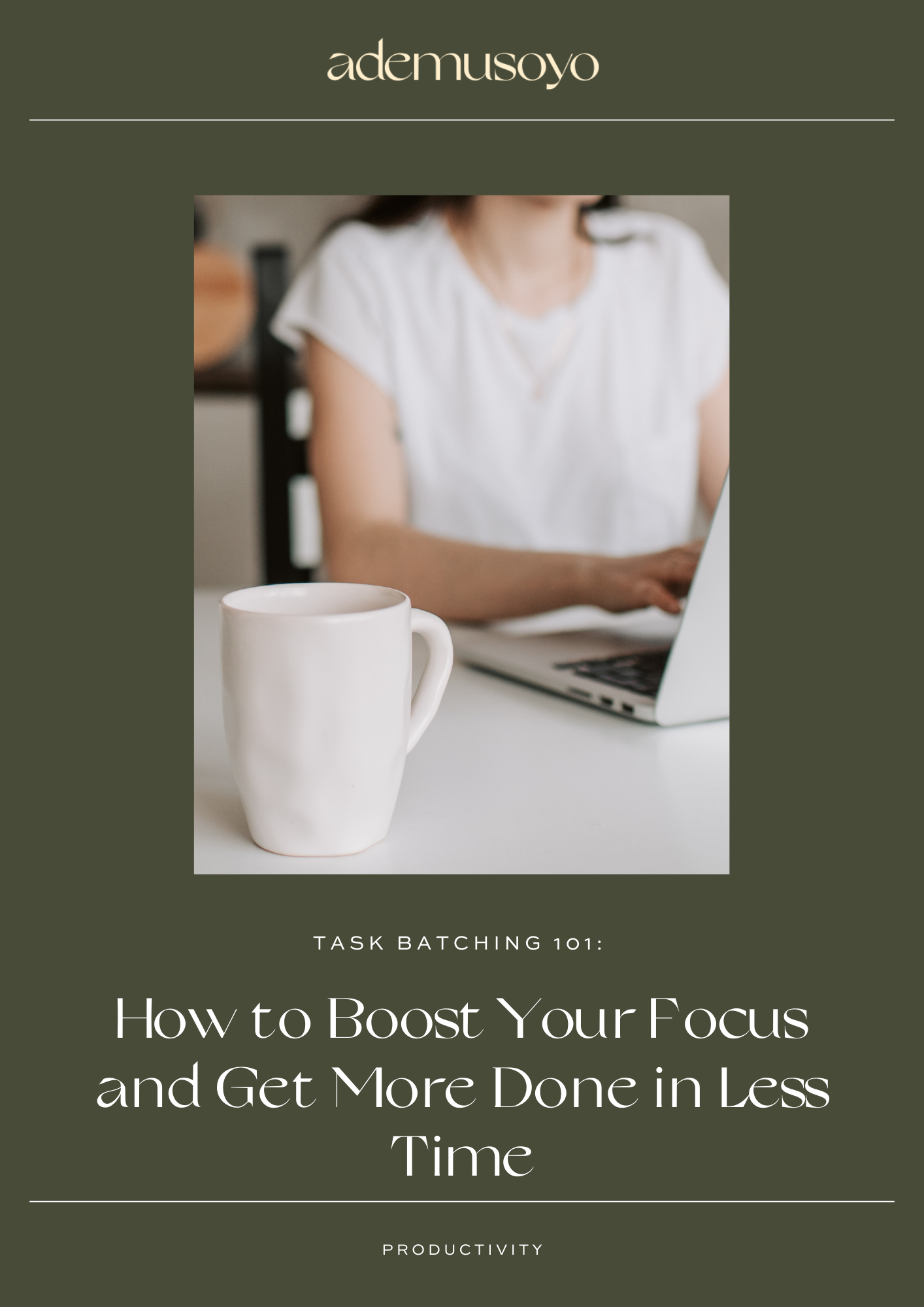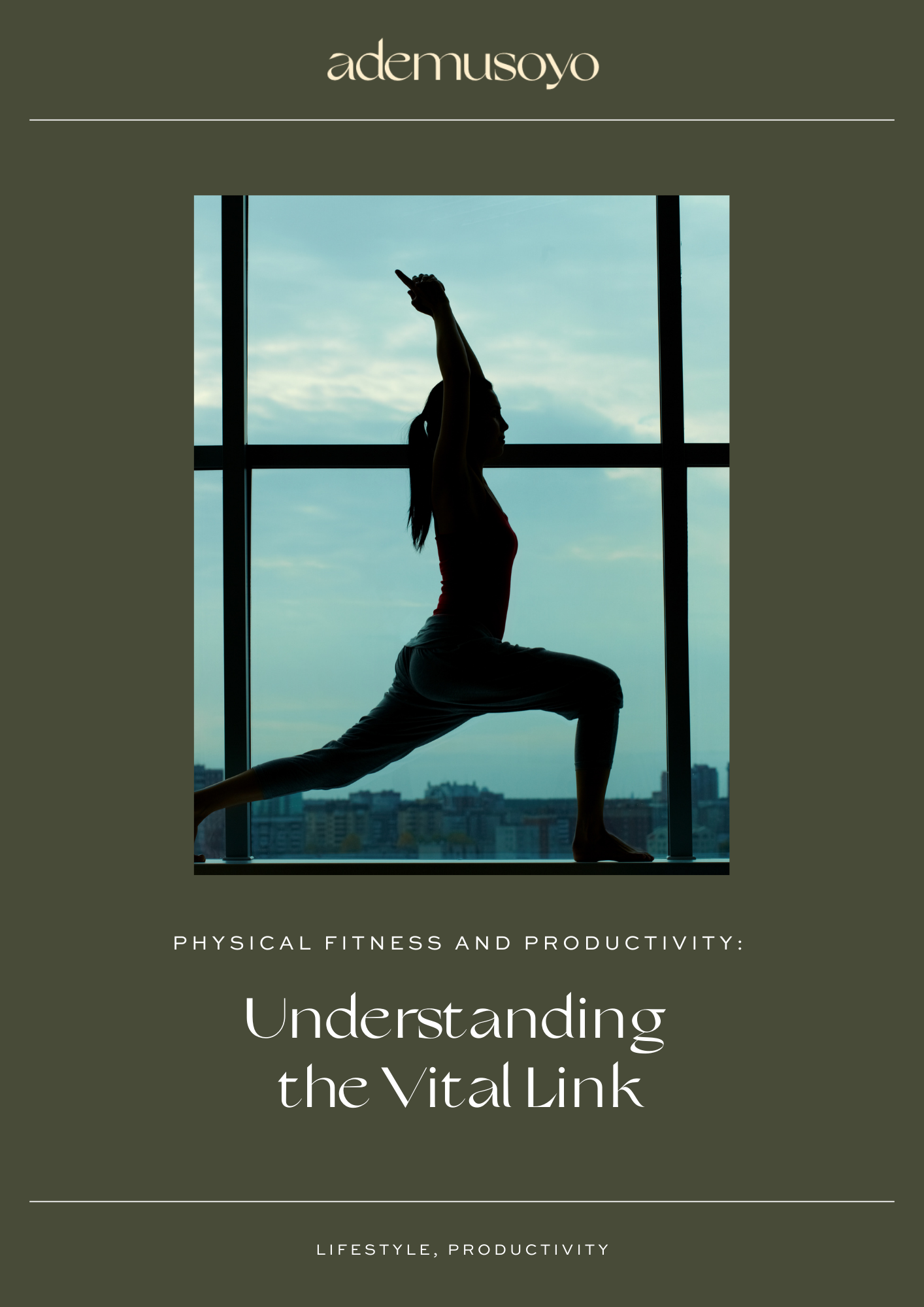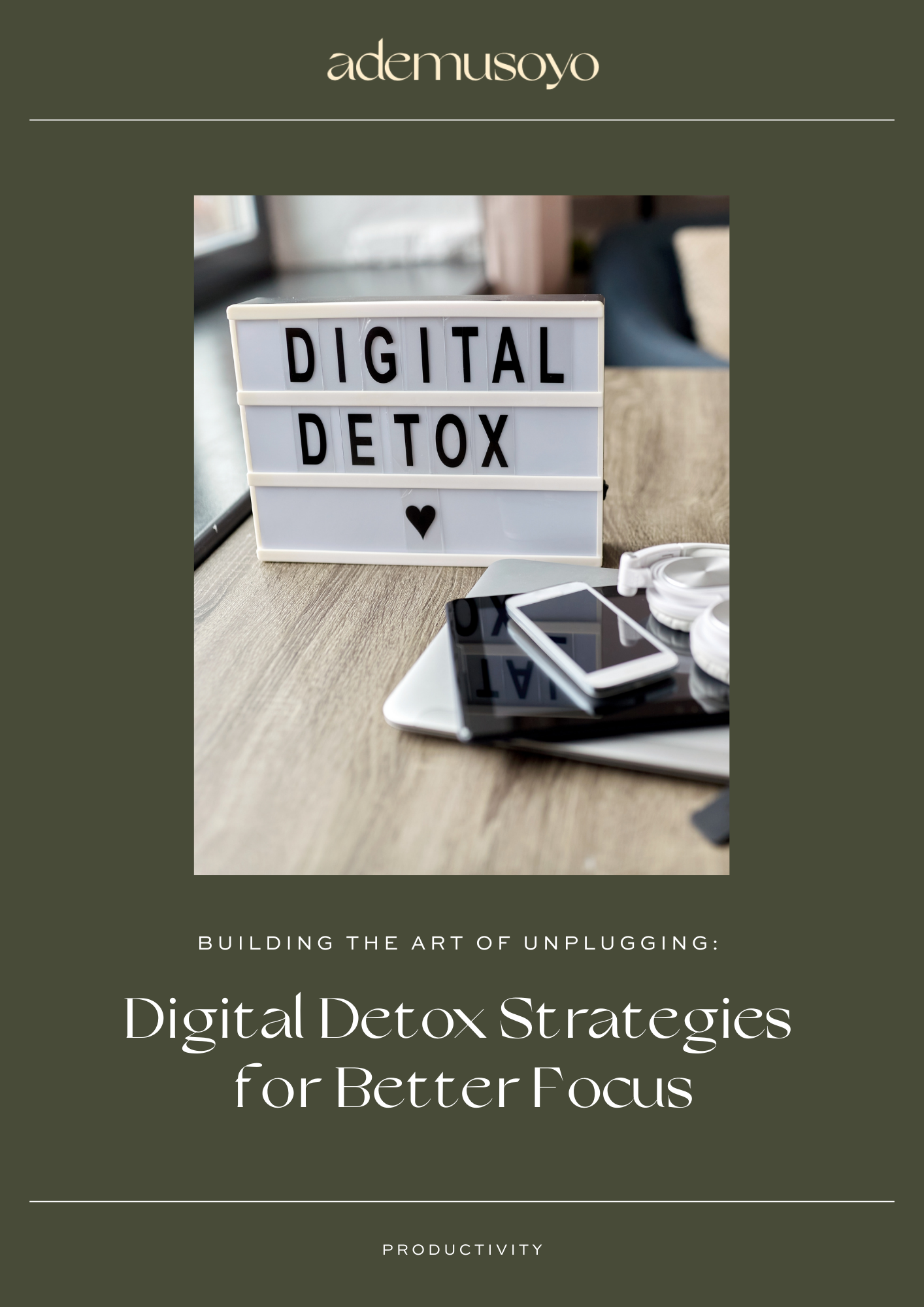I love being organized. My friends always joke about how organized I always am. If I went through my entire organization strategy, you may think “Wow, this is a lot” and you would honestly be right. Having said that, my organizational strategies have helped me to reduce burnout, prevent decision fatigue, and free up time for other activities. In our fast-paced modern lives, it’s all too easy to fall into a state of chaos and overwhelm. Juggling work, family, and personal responsibilities can leave us feeling stressed and overwhelmed. However, having a system that allows you to get organized so that you can bring order back into your life and restore a sense of calm. In this article, I’m going to share some of my practical tips to help you organize your life and beat stress both in. From decluttering your physical space to mastering time management techniques, in this blog post, you’ll learn how to regain control and create a harmonious environment that supports your overall well-being.
The importance of organization in reducing stress
Being organized is a key element in reducing stress because it allows you to focus more clearly. When you have a clear head, you’re able to better understand what are the things that need to get done as well as what are the things that you can deprioritize. Without being organized, you can get stuck in what is called decision fatigue or analysis paralysis. This can prevent you from really taking the necessary action in order to get what you need to get done to further reach your goals. Being organized allows for better clarity which can lead to less stress.
Additionally, whether you’re an entrepreneur, a working professional, or both, chances are you’re juggling multiple things at the same time. I know for me personally, I’m balancing having a 9-5 job, and my business, while also trying to maintain an active social life. By being organized, I’m able to better manage my time which means that I am able to flow into different aspects of my life with ease and being fully present. When you’re organized, it makes doing the things that you need to get done a lot easier which will allow you to accomplish your to-do lists by being fully present and energized throughout the day.
Assessing your current level of organization
When it comes to making the necessary steps it’s important to understand where you’re starting and where you’re trying to be. Knowing what your problems are can help you better define what systems and routines you need to build in order to not only get organized but also maintain a level of organization. For example, let’s say you wanted to re-organize my spice cabinet. Instead of making a blanket statement by saying, “I want my spice cabinet to be organized.” say, “When I open the cupboard, I want to know where all the spices are.” That added layer of specification will help you start to figure out the clearer steps that will ensure that you will create an organizational strategy that sticks. Here are some other questions you can ask yourself to better assess your current level of organization:
- Is my physical space cluttered or organized?
- Do I have a system in place for managing tasks and responsibilities?
- Am I utilizing my time effectively, or am I constantly playing catch-up?
- Do I feel overwhelmed or stressed on a regular basis?
Be sure that when you’re asking yourself these questions, you gain clarity on what your current processes are and what things need to change in order to become more organized and less stressed.
Setting goals for organizing your life
Unfortunately, you’re not going to be able to solve all of your organizational issues within the same day. That’s when prioritization has to come in. It’s important that you make the good habits and routines stick so that you can continue to build upon them as your responsibilities increase or decrease over time. Here’s a tip: start with one large area (for example: work, business, or personal) and then break that area down into different sub-areas (for example: household, marketing, finances, etc.) and commit to one month of finding a system or routine that allows you to get and stay organized in that area. When you’re done, move on to the next area and keep going. The little changes that you make can amount to so much when you put it all together.
Decluttering your physical space
For a lot of us, including myself, our physical space is an outward reflection of how we feel on the inside. Taking the time to declutter and clean out anything that no longer has any purpose or value can really help clear your mind when it comes to tackling other things. Here are some things that you could do:
- Cleaning out your closet
- Throwing out any expired or old products
- Reorganizing your bookshelf
- Deep-cleaning your home
My advice is for you to pick one area in your home that is bothering you the most and give yourself a weekend to tidy it up. When you see one area is complete, it can give you the motivation to clean other areas within your space as well.
Creating a daily and weekly schedule
In my previous blog posts, I have emphasized the importance of incorporating daily routines and planning your week to enhance your organizational skills. Daily routines can significantly contribute to a more balanced lifestyle by allowing you to allocate time for tasks that you don’t particularly enjoy while also making space for activities that bring you joy. On the other hand, planning your week helps you gain a comprehensive understanding of your available time and enables you to effectively manage and accomplish your tasks.
By setting a schedule for each day, you can make gradual improvements that contribute to a sense of accomplishment and renewed energy by the end of the week. This approach provides you with the opportunity to tackle each day’s responsibilities with focus and determination, knowing that you have allocated specific time slots for various tasks. Moreover, having a structured daily schedule allows you to make necessary adjustments and handle unexpected events more efficiently, as you have a better understanding of the overall flow of your day. Check out this Notion weekly planning bundle to help you get started with your weekly planning to stay organized. It also includes a task management template to help you manage your projects seamlessly.
Prioritizing tasks and responsibilities
Prioritizing tasks is essential for effective time management and productivity. By assigning priority levels to your tasks based on their importance and urgency, you can focus on what needs to be done first and ensure that important deadlines are met. Prioritization allows you to allocate your time and energy efficiently, ensuring that you tackle the most critical tasks and avoid feeling overwhelmed. By understanding the relative importance of your tasks, you can make informed decisions about where to direct your efforts and resources. With effective prioritization, you can stay organized, meet deadlines, and achieve your goals with greater ease and efficiency.
To prioritize effectively, here are the steps that I recommend that you follow:
- Make a list of tasks that you need to tackle.
- Group those tasks by the different areas of your life (ex: personal, business, work)
- Assign each task a priority level of importance and urgency ********************************************************************************************
One popular method for prioritization is the Eisenhower Matrix, which categorizes tasks into four quadrants:
- Urgent and important
- Important but not urgent
- Urgent but not important
- Not urgent and not important
By using the Eisenhower Matrix or any other similar prioritization method, you’ll be able to focus on the tasks that truly matter and reduce the stress of trying to do everything at once.
Establishing a system for managing paperwork and documents
Your digital organization is just as important as your physical organization. Spend some time deleting old files, putting things into folders, and developing a system that makes sense with your current workflow. As we live in the digital age, we are constantly consumed with so much information that is almost impossible to understand what is relevant and what we could get rid of. One of the ways that I have found to help me become more digitally organized is the PARA method. This methodology has been instrumental in guiding me to build a second brain which has been an efficient method for me to manage new information, stay ahead of work tasks, and achieve goals.
The PARA method is broken down into four major areas:
- Projects: ideas that have a defined beginning and end date (e.g.: Marketing Campaign, Client Project)
- Areas: Overarching themes that you’re constantly focusing on or responsible for (e.g.: Marketing, Finances, Operations)
- Resources: Articles, posts, and notes, that can help you complete a project or can be relevant to a particular area (e.g.: a blog post or notes from a meeting)
- Archives: Things that you don’t need anymore but might be relevant later (e.g.: completed projects or old areas)
This method can be implemented using any digital tool and can even work physically as well. By using an effective system for staying on top of your digital life, you’ll be able to think clearly which will help you be less overwhelmed.
Utilizing technology to stay organized
Don’t be afraid to spend a little extra time using technology to make things easier for you. There are tons of amazing tools on the internet that can help streamline, visualize, and automate your day-to-day so that you can focus on things that require more of your energy. Here are some tools that I use/have used in the past that I’ve enjoyed:
- iOS notes app
- Notion
- Obsidian
- Calendly
- Google Calendar
- Zapier
- Stripe
- Dubsado
- Loom
- Click Up
- Google Cloud
- LastPass
While you may think adopting a new tool might be cumbersome and hard to get started working with, once you get it set up to your liking it can make things more energizing.
Practicing self-care and stress management techniques
In today’s fast-paced world, it’s easy to get caught up in the constant demands and pressures of our daily lives. We often find ourselves overwhelmed with tasks and responsibilities, leaving little time for self-care and personal well-being. However, it’s important to recognize the significance of prioritizing ourselves and making self-care an essential part of our stress management strategy.
Self-care can take many forms, depending on our individual preferences and needs. It can involve engaging in activities that bring us joy and relaxation, such as practicing mindfulness, exercising, spending time in nature, or pursuing hobbies and interests. Additionally, self-care can also include setting boundaries, saying no to excessive commitments, and prioritizing rest and relaxation.
When we prioritize ourselves and make self-care a non-negotiable part of our lives, we not only benefit individually, but we also set a positive example for those around us. By prioritizing self-care, we encourage others to do the same and create a culture of well-being and balance.
Maintaining an organized and stress-free life: tips for long-term success
Now that you’ve put in the time and energy to create an organizational strategy that will simplify your life and clear some headspace. Now you have to make sure you stick with it! While it may be easier sometimes to not have everything organized, it’s not worth the stress of doing it all over again. Here are some ways that you can do that
- Regularly decluttering your home
- Maintaining your good routines and habits
- Reviewing and adjusting your goals as needed
- Practicing self-compassion
- Seeking support when needed
Things will ebb and flow as days or even weeks go by but it’s important that you maintain your foundation. Your foundation is what is going to be what helps you up when things may get hard which can propel you forward.

Closing
By implementing these strategies, you’ll not only experience a more peaceful and productive daily routine but also reduce stress levels and boost your overall happiness. Whether you’re a busy professional seeking work-life balance or a stay-at-home parent looking to streamline household tasks, these tips will provide you with the guidance you need to transform chaos into calm. Get ready to take charge of your life and embrace a more organized and stress-free existence. If you would like to take the first step in getting more organized, I invite you to grab my free goals and routines tracker Notion template.
P.S.
Don’t forget to subscribe to my newsletter to get the latest updates on productivity hacks, time management, and organization tips for small business owners. Or follow me on Pinterest, Instagram, YouTube, or Twitter!









0 Comments